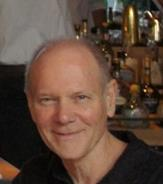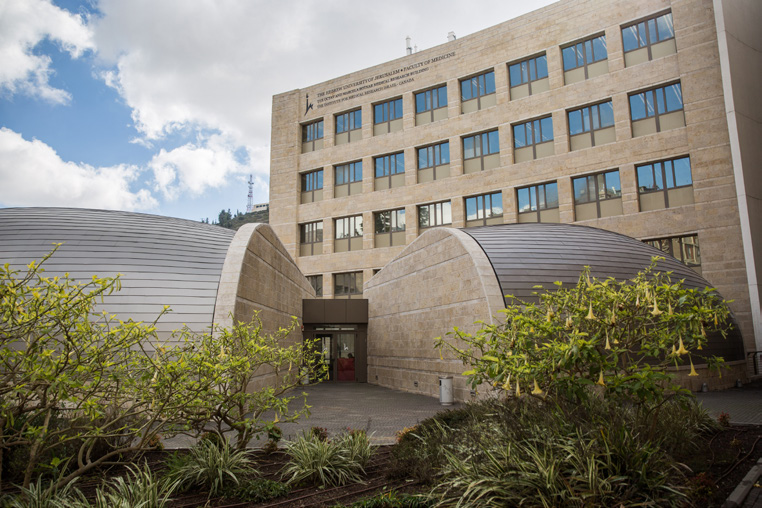Name:
 Yinon Ben Neriah
Yinon Ben Neriah
Title: Professor
Email: yinonb@ekmd.huji.ac.il
Tel: +97226758718
Research Interests
Developing small molecule multi-kinase inhibitors as novel anti-leukemia agents Acute myeloid leukemia (AML) is a relatively infrequent cancer yet accounts for 2 percent of all cancer death. Despite some recent remarkable developments in treating certain AML types, the standard therapy of the disease hasn’t changed much in the past 50 years. AML commonly harbors non-mutated p53, but the tumor suppressor protein is frequently inactivated due to enhanced activity of its negative regulators, particularly Mdm2. These regulators complement aberrant epigenetic reprograming in protecting the malignant cells; their elimination may enhance cancer vulnerability by increasing the sensitivity to chemotherapy.
A breakthrough in our laboratory was the discovery that CKIα ablation is also an effective way of activating p53 (Elyada et al., Nature, 2011). As a result, we embarked on the development of small molecule inhibitors of CKIα and produced the first prototype high affinity inhibitors of this CKI isoform. Testing these inhibitors in animal models of AML showed profound therapeutic responses in both genetically modified mouse models and patient derived xenografts. Consequently, the lead compound A51 we developed has been approved as an investigational new drug (IND) by the FDA and is already being tested in phase I clinical trial in treatment- refractory and relapsing MDS and AML patients
(https://doi.org/10.1182/blood-2020-142557).
As a mechanism of action, we found that CKIα inhibitors having the best anti-leukemic activity also target the transcriptional kinases CDK7 and CDK9, which phosphorylate RNA Pol II CTD at Ser5 and Ser2. Inhibition of these kinases strongly affected specific gene-regulatory clusters known as super-enhancers (SEs), having a major role in driving oncogene expression. One common form of cancer cell vulnerability is transcriptional addiction, often associated with a robust transcriptional thrust mediated by SEs. SEs have recently been highlighted as attractive targets for epigenetic therapy of cancer, particularly in hematological malignancies, although no such therapy has yet demonstrated an outstanding clinical benefit, due to toxicity and low efficacy. Considering these unique properties, we chose to term this kind of inhibitors oncodestroyers (ODs), standing for single molecules which by co-targeting several critical oncogenic hubs maximize cancer cell death. To further elucidate the mechanism of action of this kinase inhibitor, our lab is focusing on deciphering key molecular targets that are necessary for optimal drug activity. To this end we are expanding the collection of small molecule kinase inhibitors and developing A51- based proteolysis targeting chimera proteins (PROTACs) for degrading critical AML therapeutic
target proteins of A51. As patient treatment with many kinase inhibitors often leads to drug resistance, we are already exploring genetic and epigenetic alternations, as well as the immune effectors possibly involved in emerging resistance to A51 treatment. Based on these studies we will design combination therapies for enhancing the efficacy and avoiding resistance to A51.
Ten Selected Papers
*co-corresponding authors; #co-first authors
1.Kadosh E, Snir-Alkalay I, Venkatachalam A, May S, Lasry A, Elyada E, Zinger A, Shaham M, Vaalani G, Mernberger M, Stiewe T, Pikarsky E, Oren M & Ben-Neriah Y. Gut microbiota switches mutant p53 from tumor-suppressive to oncogenic. Nature, 2020, 1 October, 586: 133-138
2.Minzel W, Venkatachalam A, Fink A, Hung E, Brachya G, Burstain I, Shaham M, Rivlin A, Omer I, Zinger A, Elias S, Winter E, Erdman PE, Sullivan RW, Fung L, Mercurio F, Li D, Vacca J, Kaushansky N, Shlush L, Oren M, Levine R, Pikarsky E, Snir- Alkalay I, Ben-Neriah Y. Small molecules co- targeting CKIα and the transcriptional kinases CDK7/9 control AML in preclinical models. Cell. 2018 Sep 20;175(1):171-85.
3.Morgenstern Y, Adhikari UD, Ayyash M, Elyada E, Tóth B, Moor A, Itzkovitz S, Ben‐Neriah Y. Casein kinase 1‐epsilon or 1‐delta required for Wnt‐ mediated intestinal stem cell maintenance. The EMBO journal. 2017 Sep 28:e201696253.
4.Chang CH, Kuo CJ, Ito T, Su YY, Jiang ST, Chiu MH, Lin YH, Nist A, Mernberger M, Stiewe T, Ito S, Wakamatsu K, Alkalay, I and Ben-Neriah Y. CK1α ablation in keratinocytes induces p53-dependent, sunburn-protective skin hyperpigmentation. PNAS. 2017 Sep 6:201702763.
5.Lasry A, Aran D, Butte AJ, Ben-Neriah Y. Cancer Cell–Autonomous Parainflammation Mimics Immune Cell Infiltration. Cancer Res. 2017 Jul 15;77(14):3740-4.
6.Aran D, Lasry A, Zinger A, Biton M, Pikarsky E, Hellman A, Butte AJ, Ben-Neriah Y. Widespread parainflammation in human cancer. Genome biology. 2016 Dec;17(1):145.
7.Finkin S, Yuan D, Stein U, Taniguchi K, Weber A, Unger K, Browning JL, Goossens N, Nakagawa S, Gunasekaran G, Schwartz ME, Kobayashi M, Kumada H, Berger M, Pappo O, Rajewsky K, Hoshida Y, Karin M, *Heikenwalder M, *Ben- Neriah Y and *Pikarsky E, (*corresponding authors). Ectopic lymphoid structures as microniches for tumor progenitor cells in hepatocellular carcinoma, Nature Immunology,
2015, 16:1235-44.
8.Kanarek N, Grivennikov SI, Leshets M, Lasry A, Alkalay I, Horwitz E, Shaul YD, Stachler M, Voronov E, Apte RN, Pagano M, Pikarsky E, Karin M, Ghosh S, Ben-Neriah Y. Critical role for IL-1β in DNA damage-induced mucositis. PNAS. 2014 Feb 11;111(6):E702-11.
9.Pribluda A, Elyada E, Wiener Z, Hamza H, Goldstein RE, Biton M, Burstain I, Morgenstern Y, Brachya G, Billauer H, Biton S, Snir-Alkalay I, Vucic D, Schlereth K, Mernberger M, Stiewe T, Oren M, Alitalo K, Pikarsky E, and Ben-Neriah Y. A senescence-inflammatory switch from cancer- inhibitory to cancer-promoting mechanism. Cancer Cell. 2013 Aug 12;24(2):242-56.
Elyada E, Pribluda A, Goldstein RE, Morgenstern Y, Brachya G, Cojocaru G, Snir-Alkalay I, Burstain I, Haffner-Krausz R, Jung S, Wiener Z, Alitalo K, Oren M, Pikarsky E, and Ben-Neriah Y. CKIα ablation highlights a critical role for p53 in invasiveness control. Nature. 2011 Feb;470(7334):409.







 Collaborative Investigators
Collaborative Investigators


